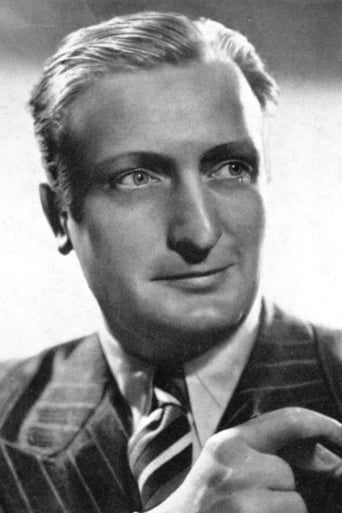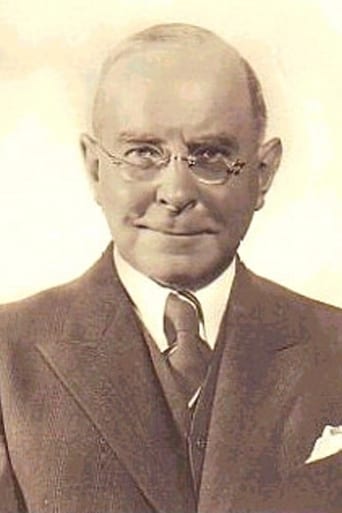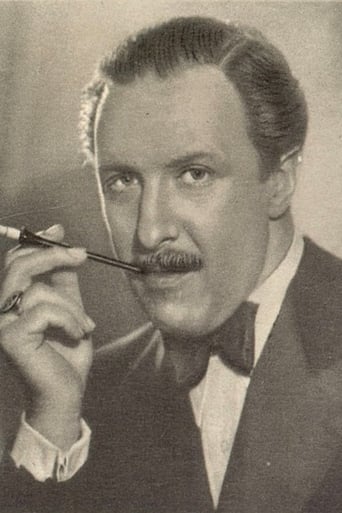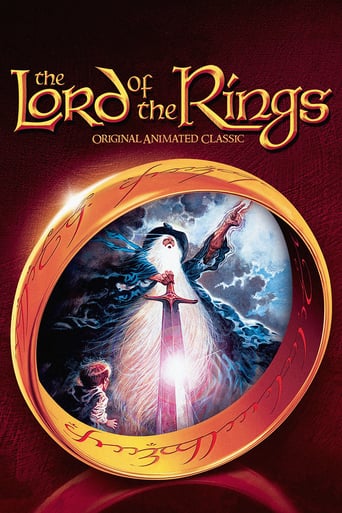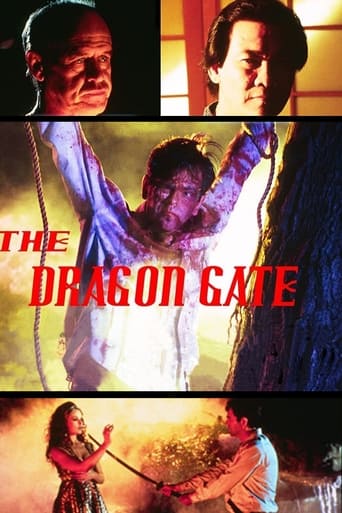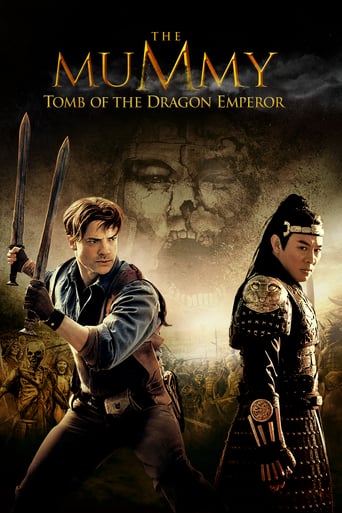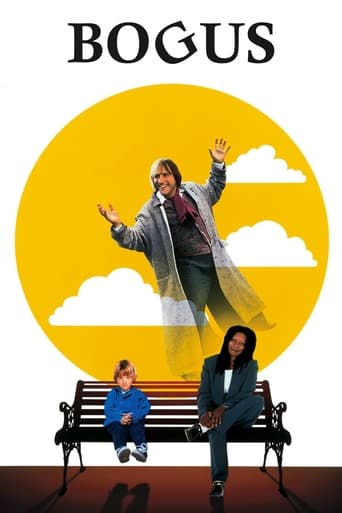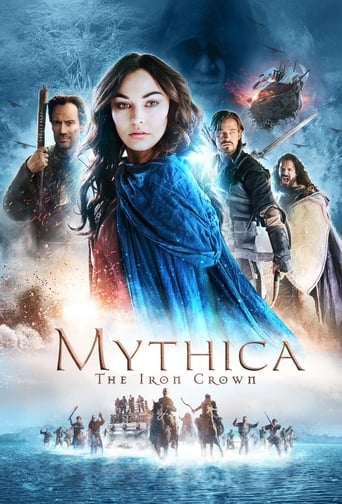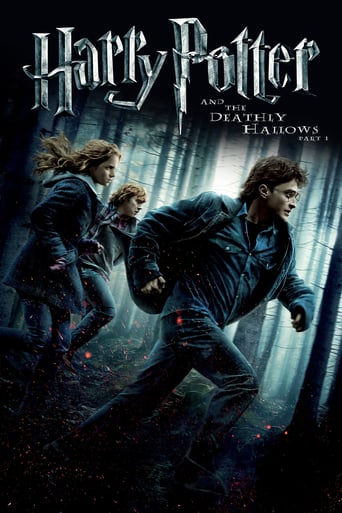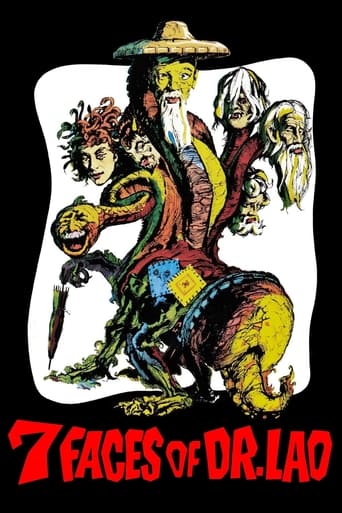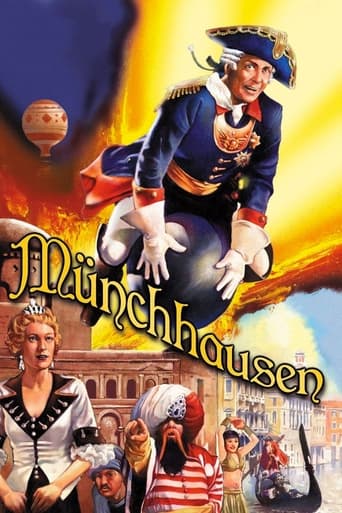
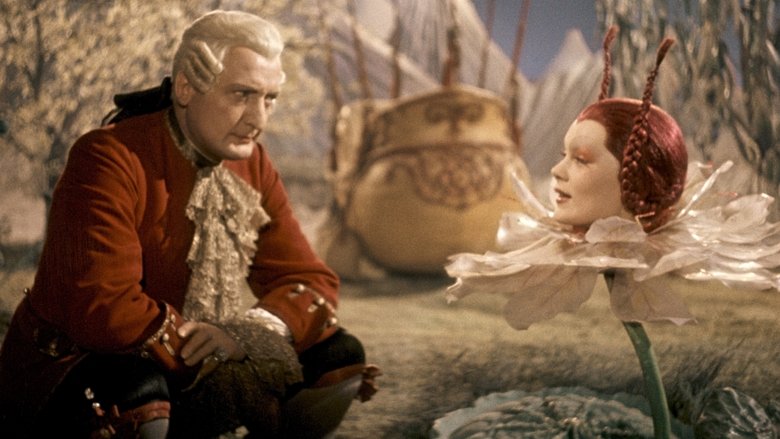
Münchhausen (1943)
Wanting a lavish production to mark the 25th anniversary of UFA, the German film studio, Joseph Goebbels, director of the Nazi propaganda machine, commissioned an adaptation of Baron von Münchhausen‘s “autobiographical” stories. Baron von Münchhausen (1720-97) was an eccentric figure in European history, whose tall tales about his adventures rival anything to be found in the legends of Paul Bunyan or classic figures like Odysseus. This film recounts some of the episodes from the Baron’s sensational stories, which are set in the world of the 18th century.
Watch Trailer
Cast


Similar titles
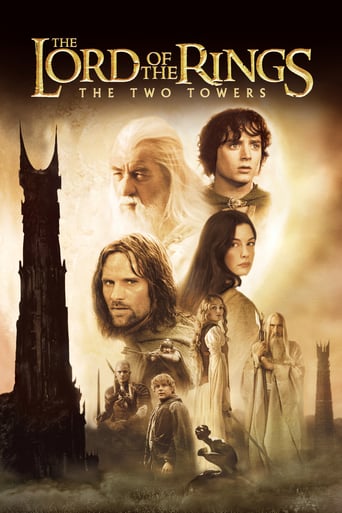
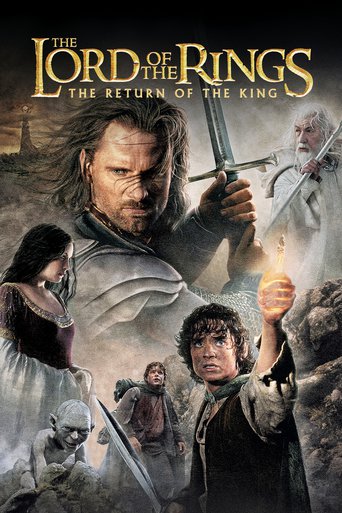
Reviews
I think this is a new genre that they're all sort of working their way through it and haven't got all the kinks worked out yet but it's a genre that works for me.
It's an amazing and heartbreaking story.
It is an exhilarating, distressing, funny and profound film, with one of the more memorable film scores in years,
It’s sentimental, ridiculously long and only occasionally funny
I first saw "Münchhausen" in my native Romania as a child during the war (I mean WWII) and the scene of the baron's landing on the moon and having a conversation with the head, lying on the ground, of a woman who left the rest of her body in her lunar home, made such a powerful impression on me that to this day I remember it in all its funny details. It was also the first movie in color I had ever seen; yes, those were the days when movies, as a rule, were in black and white. Revisiting the movie now, as a euphemistically labeled "senior citizen," I was surprised that it holds up quite well. It amuses, it surprises, it is well acted, the dialog is clever, written after all by the famous novelist Erich Kästner under a pseudonym to cover up the fact that the Nazis saw themselves forced to employ him after burning his books. There is something quite disturbing in hindsight about this movie. Why was it made? It was released in the year between the Battle of Stalingrad and the Allied Normandy Invasion the two events that were to seal Germany's fate. Was it an attempt to sustain both at home and abroad the far-fetched illusion that the war was going so well that all the German people cared about was laughing at the Baron Münchhausen's lies? Or was it an attempt at showing that Babelsberg could produce a grand spectacle just as well as Hollywood? And if a spectacle was being offered, why, in a country in which mass murder and deception were the order of the day, was even the hero to be a liar?I am asking these questions because much in this movie is disturbing for reasons related to them. Take the Baron himself, played in this movie by Hans Albers, the greatest star, the Clark Gable of German movies in those years, yet by the time of this movie a man in his fifties pretending to be irresistible to females. It is as if MGM had cast an aging Adolphe Menjou as Rhett Butler in "Gone With the Wind." Now Albers is a fine actor, but to enjoy the movie you definitely have to suspend disbelief and pretend that the aging actor riding the cannonball is not bothered by arthritic pain. The sets look more like cheap nouveau-riche furnishings and the costumes are cut from wartime stock. Ilse Werner, as Princess Isabella d'Este, is as beautiful as ever, and as Count Cagliostro we get to see Ferdinand Marian, the actor who just a few years earlier had disgraced himself by playing the lead in "Jud Süss," the most disgusting anti-Semitic propaganda film ever made, a fact that ultimately led Marian to alcoholism and a DUI death at war's end, considered a suicide by many. Now, one can say, let's just watch the film for what it is, and not in its historic context. But then, Marian's acting of Cagliostro, a swindler, is crafted with the same mannerisms he used in creating the Jew Süss. In short, the undeniable artistic qualities of this movie are infected with the severe moral deficiencies of its makers, and this surprisingly renders the movie more interesting than it has any right of being. This is what disturbs me.
In film history class we were usually shown a silent era German movie followed by Triumph of the Will. This film ought to be included. It is surprising on a few fronts. One is the high production values. Not a cheap movie at all. Even when compared to a US technicolor film of the period, this had a few advantages like real European locations, access to the Venice canals (a movie in colour first?). It could also be the first colour film to show a space-science fiction sequence. The effects were impressive for the time and its clear that the Gilliam version borrowed some fx ideas from this. The often heard assumption that Germany's best film technicians all fled or were killed simply isn't true judging by this. Very colourful film. The language barrier prevented me from judging the comic timing very well but looked as though the performances were on target. As others have pointed out the nudity and sexual talk is rather jarring to see when you think of the US censorship board of the period. Probably the two biggest surprises were the black people(!) and the not so unsubtle digs at the regime. The villain with the moustache talking about invading Poland really came as a surprise. This flies in the face of what I often heard-that Germans were brainwashed by Hitler-clearly there was some dissent judging from this. And it also counters the idea that was put froward in the last 10 years that in war time one doesn't criticize the sitting president. They did in Nazi Germany!
The fabulous exploits of Baron MÜNCHHAUSEN include several wars, numerous plots and beautiful women without number.At the height of World War Two, as the tide was beginning to turn against the Third Reich, Hitler's Minister of Propaganda, Joseph Goebbels commissioned this lavish motion picture as a commemoration of the 25th anniversary of Ufa, the government-run German film association. More importantly, it was also to be a rival of the great fantasy films which had come from the Allied nations, such as THE WIZARD OF OZ (1939) and THE THIEF OF BAGDAD (1940). In that it succeeds brilliantly and needs no comparison to any other film.The film is a great, lighthearted romp as it follows the adventures of the Baron from Prussia to St. Petersburg, Constantinople, Venice and even the Moon. It is fascinating to see the high quality which the Germans were still able to lavish on the picture, even as their Empire was beginning to crumble around them. The production values are of a very high order and the Technicolor photography is sumptuous to the eye. Remarkably, there is no National Socialist propaganda in the film and the War is never mentioned.In the title role, Hans Albers gives a surprisingly sensitive performance for such a robust production. He takes the legendary character and gives the viewer a portrait of a dashing, reflective, amorous, compassionate, resourceful man. Whether riding on a cannonball, ingratiating himself with the Ottoman Sultan, or examining the fantastic flora of the lunar planet, Albers always makes Münchhausen totally believable.All the acting is of a high order, but especially worthy of mention are Ferdinand Marian as the mysterious Count Cagliostro, Brigitte Horney as a flirtatious Catherine the Great, and Gustav Waldau as an aging Casanova.It should be mentioned that this is not a movie for children. Given its European origins it should come as no surprise that MÜNCHHAUSEN is a good deal more libidinous than the standard Hollywood fare of the time.**************************There was a real Baron Karl Friedrich Hieronymus von Münchhausen (1720-1797), a German adventurer and teller of tall tales, but he had nothing to do with the book of fictional exploits which borrowed his name, written by Rudolf Erich Raspe (1737-1794), upon which this film was based.
***SPOILERS*** ***SPOILERS*** This lavish production in Agfacolor, ordered by Goebbles himself, was made to mark the 25th anniversary of the German UFA-Studio. The film begins with a gala 18th century ball at the Bodenwerder castle by the jovial Baron Muenchhausen and his wife. There is a sudden lovers' quarrel between two of the guests. The young girl flees and jumps into her car. We have been viewing a costume party, and the period is very definitely the present. The baron and his much older wife attempt to reconcile the pair. He tells them of the adventures of his "ancestor", the fabulous Baron Muenchhausen, and the film goes into flashback, this time to the real 18th century. Muenchhausen and his servant Christian visit the baron's father, who is puzzled over Christian's invention of a rifle which can see and shoot a distance of 200 kilometers. After the visit the pair decides to go to Braunschweig at the invitation of the Prince of Brunswick to whom the Empress Catherine the Great has offered a command of a Russian regiment. The prince asks for Muenchhausen's help in convincing his lovely mistress Louise la Tour to make the trip, and when this is accomplished the group sets off for Russia. The dealings at the Russian courts are devious. The magician Cagliostro tries to enlist Muenchhausen in a plot against the empress, but without success. At a carnival the baron meets a young girl named Kaetchen who is later revealed to be the Catherine in disguise. Muenchhausen becomes Catherine's new lover, kindling the jealousy of the former favorite, Prince Potemkin, who challenges the baron to a duel, injuring him slightly. Muenchhausen goes to the sinister loking house of "Doctor" Cagliostro to have his wound treated, and while there warns Cagliostro that he is about to be arrested. Although the magician knows this, he rewards the baron with the secret of eternal youth, and also gives him a ring that will amke him invisible for one hour. As the secret police breaks into the house, Cagliostro escapes using magic to amke him invisible. Catherine soon tires of Muenchhausen and sends him to Turkey in command of a regiment. He is inadvertently shot on a cannonball to Constantinople where he becomes a prisoner of the sultan. After a period of imprisonment he is reunited with his servant, Christian. The baron is offered his freedom if he will convert to Moslem religion. He explains to the sultan that this would be impossible because he would have to drink water instead of wine, but the sultan tells him he does not really abstain - and gives a sample of his private stock of Tokay. Muenchhausen insists that the Tokay he drank at the palace of the Empress Maria Theresa in Vienna was twice as good. This leads to a bet in which the baron promises to provide the sultan with a bottle from Vienna in an hour. If he wins the bet he will have his freedom. Thanks to a wonderful runner, the bottle is produced, leading to a second wager. If the wine is indeed better than the sultan's, Muenchhausen will be rewarded with the beautiful Princess Isabella d'Este, a prisoner in the harem. Muenchhausen wins this bet too, but the Sultan reneges on his promise, attempting to pass off the aging Louisa la Tour as Isabella. Using the magic ring, the baron invades the harem, abducts the real princess, and sets sail for Venice. He learns that the girl's family had planned to marry her to an old man. She had fled the city but was abducted by pirates who sold her to the sultan. Her sudden return is no joy to the family, and her wicked brother Francesco has her kidnapped a second time and locked up in a convent. Muenchhausen fights a duel with Francesco that results in the latter's clothes being cut to ribbons. Muenchhausen and Christian, with the d'Este family in pursuit, escape Venice in a balloon conveniently anchored in the Grand Canal. Their vehicle takes them to the moon. There, in a surrealist landscape, Christian ages and dies, because one day is equal to a year on earth - but Muenchhausen is, of course, immortal. His gloom is dispelled by the presence of the wife of the Man in the Moon. She can be in two places at the same time by separating her head from her body. But even her charms soon pale, and the baron returns to Germany. The scene now shifts back to the present (presumably the 1930s) where Muenchhausen tell the startled young couple that he and his distinguished "ancestor" are one and the same. Thoroughly frightend, they flee the castle. The baroness, having observed that her husband is attracted to the girl, tells him to follow his new love. Instead, he renounces the gift of eternal youth to grow old with her.This film has been a favorite of mine since my childhood. Therefore, I can highly recommend it. In my opinion, this version is much better than the 1988 offering by Terry Gillian.


